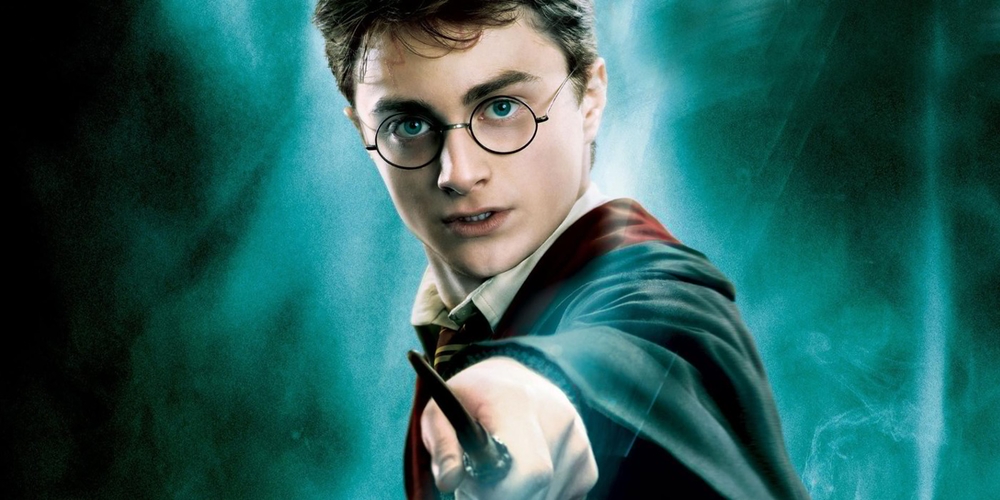
Warner Brothers’ biggest cash cow has the edge over most franchises because it’s based on such strong source material. Whatever your opinion on J.K. Rowling’s writing, no one can deny her impressive world building and well thought-out storylines that provided the series with a consistency rarely seen in a franchise.
Beginning in 1997 with the publication of the first book, it was only a matter of time before the phenomenon spilled over to the big screen (with a whole host of Young Adult adaptations following suit). By insisting on keeping the cast British, Rowling ensured the legacy of the franchise alongside other native fictional works like James Bond, Sherlock Holmes and Doctor Who.
Harry Potter is the classic archetype orphan who discovers his worth more than he initially thought. Discovering he’s a famous wizard, attending Hogwarts School of Witchcraft and Wizardry, becoming part of a world that’s both strange and natural to him, Harry (with friends Ron and Hermione) embarks on a journey that sees him fulfill his destiny against the villainous Lord Voldemort.
While any book fan will tell you that the book is always better than the movie, there’s still much to enjoy for the casual movie fan even if it’s hard to comprehend the storyline at times. For 10 years the series dominated the box office as we watched Harry and his peers grow before our very eyes and navigate adolescence, with a little magic of course.
8. Harry Potter and the Philosopher’s Stone (2001)
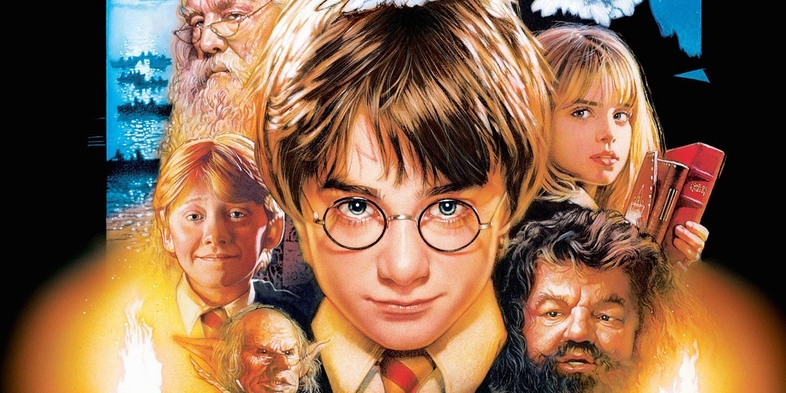
Chris Columbus (“Home Alone”, “Mrs. Doubtfire”) was always a master at making movies the whole family can enjoy and this is no different. For better or worse, he and Steve Kloves stayed faithful to the book with minor changes, only condensing the story and trimming the fat where deemed necessary.
The performances from the three young leads had still to reach its prime; you can actually see them thinking before they say their lines in certain scenes, but it’s in no way distracting. As always, Emma Watson is head and shoulders above her peers and Alan Rickman is the most memorable for his hilariously creepy mannerisms, deadpan personality, and awkwardly blank stares as Professor Snape.
Even though there isn’t an outright terrible movie in the series, “The Philosopher’s Stone” (or “The Sorcerer’s Stone” depending on where you’re from) doesn’t quite compare to what came after. You can see the series still trying to find its feet. And the urgency and threat that Voldemort (who somehow looks like Clint Eastwood here) provides only comes a few movies down the line, which makes it feel like a fairytale yarn.
It does, however, set up the characters, storyline and wizarding world wonderfully, with its biggest flaw being the unconvincing special effects that looked dated even upon its release. The troll in the bathroom, the Quidditch match, and the three-headed-dog all look like works in progress than the final product of a big budget movie.
All in all, it’s hard to fault Columbus and the movie that basically birthed the whole series.
7. Harry Potter and the Chamber of Secrets (2002)
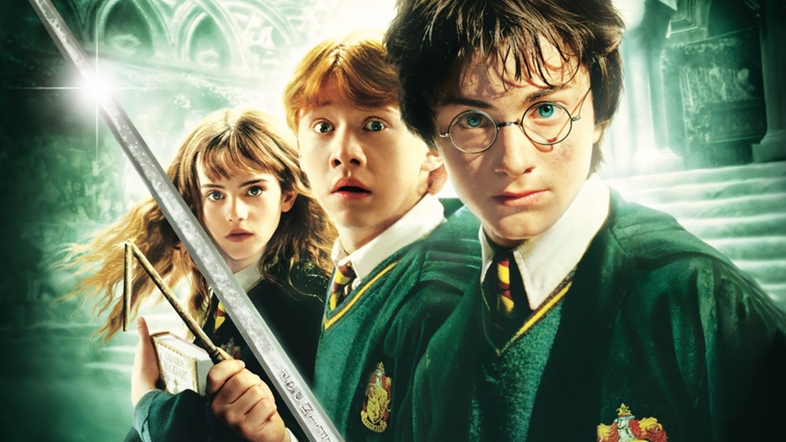
Improving on its predecessor in every possible way; the acting from the then-child actors is more confident, the sets and design more developed, the directing more controlled, and the universe more in-depth.
The special effects have also improved for the most part, but the series always seemed to struggle with non-human characters and in this entry, it’s the Basilisk, which has a cool design but doesn’t quite make you nearly as petrified as the characters when you see it.
Kenneth Branagh is a welcome, one-off addition to the constant revolving door of Defence Against the Dark Arts teachers as Gilderoy Lockhart, as an egotistical, self-centred, arrogant charlatan with a smile to match that you can’t help but love.
Richard Harris sadly appears in his last performance as Professor Albus Dumbledore, matching the book version of the character to a tee, with some book fans preferring his portrayal to the more energetic Michael Gambon performance that followed.
Clocking in at almost three hours, the running time may feel like overkill to the more casual fan with a consistency problem to boot, but you can sense Columbus had a great time behind the camera and it’s hard not to join him.
6. Harry Potter and the Order of the Phoenix (2007)
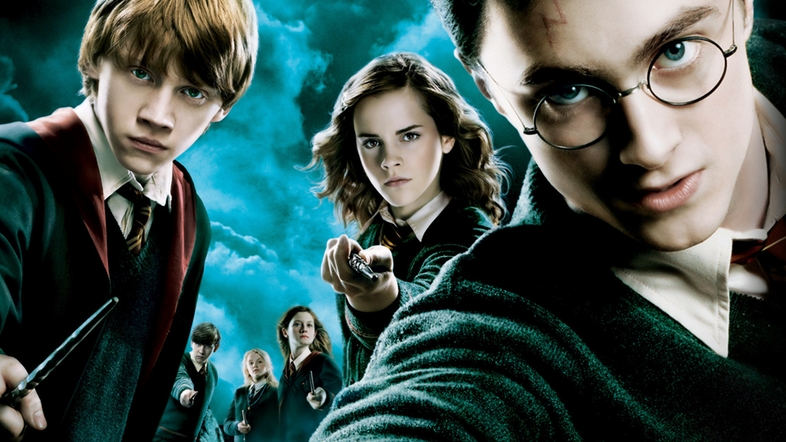
The hardest part of any book-to-movie adaptation is deciding what to leave out, what to alter, and what to add, much to the disdain of book acolytes. If it’s for the good of the cinematic story then it’s understandable. But the thing with that is this: it’s always going to be a matter of opinion.
Screenwriter Michael Goldenberg and first-time feature film director David Yates (“State of Play”) make some ill-advised decisions, making you long for series regular screenwriting wizard Steve Kloves. It also makes you wonder how the longest book of the series (also the worst) can become the shortest movie (at the time) of the series.
By cutting out so much from the book and quickening the pace, the story does get a bit hard to follow. Sirius Black’s death is rushed and thus ineffective for such an emotional and important moment.
However, the filmmakers move things along, cleverly increasing the urgency and danger with some creative exposition in a number of montages and sequences. The special effects are eye-popping gorgeousness even if Grawp is an epic fail.
The acting is tremendous with Daniel Radcliffe giving perhaps his best performance in the series. Imelda Staunton’s performance as Dolores Umbridge is pitch-perfect even it leans a bit too much on the comedic side.
What keeps it from being the worst movie in the series is the fantastic last act at the Department of Mysteries that climaxes with a gripping duel between Dumbledore and Voldemort, which is ironically one of the best moments of the entire series.
5. Harry Potter and the Deathly Hallows Part 1 (2010)
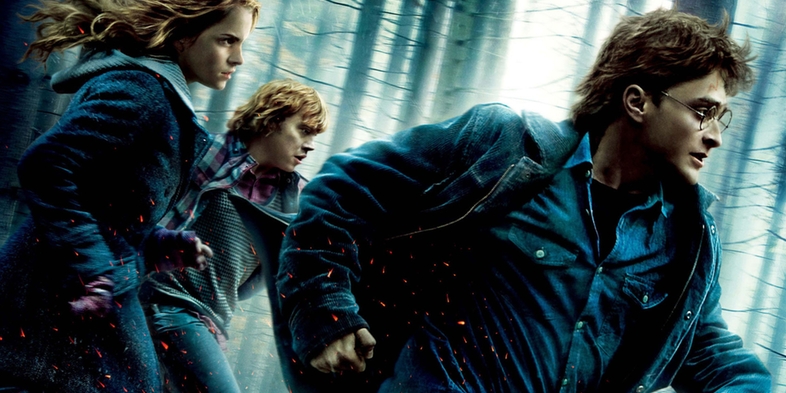
It doesn’t take an O.W.L. exam distinction to realize that the decision to split the last book into two movies was purely a financial one. But it does work better and is more justifiable than the other young adult series’ that have done the same.
While fans complained about the slower pace and endless camping scenes in both the book and movie, it does feel refreshing to focus more on character than plot all the time, especially when Yates’ entries are concerned. Those who appreciate the slower pace will find lots to enjoy in the beautiful locations and meditative tone.
With Hogwarts falling into the background, it feels more like a road movie where danger could be lurking at every corner. The special effects so elegantly merge into the picture that they’re barely noticeable.
Ralph Fiennes gives another excellent performance as Lord Voldemort, although it does start to feel like he’s becoming a parody of himself and is a not-an-all-too competent villain. Helena Bonham Carter as Bellatrix Lestrange steals the show every time she’s onscreen with her intense, insane and electrifying performance.
The biggest problem with this entry and series, in general, is the way that some characters have been handled in the movies. For insistence, Dobby last showed up in “The Chamber of Secrets” even though he plays a big role in all of the books.
So when he suddenly appears to save Harry and company, which leads to his death, it’s hard to feel any empathy for a character that’s only been on screen for a couple of minutes and was last seen way back when, no matter how sad Yates tries to make it feel.
All in all, Part One is nothing but the calm before the storm.